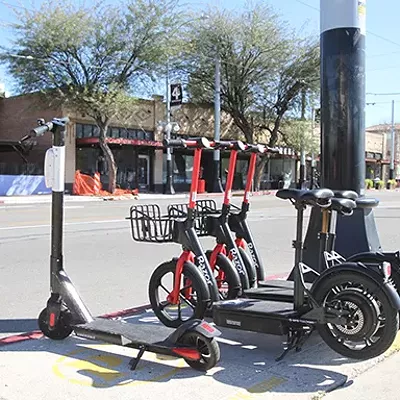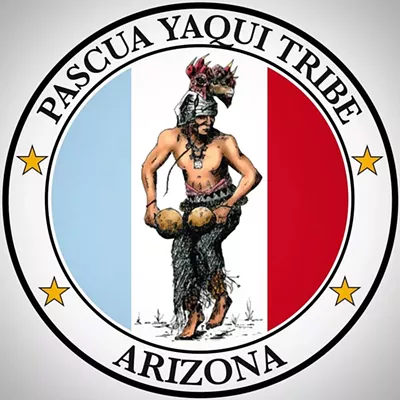Tuesday, October 27, 2015
Meet Tucson Ward I Republican Candidate Bill Hunt
Bill Hunt was born and raised in Wilmington, Delaware. He went to college at the University of Portland in Oregon, earning degrees in mathematics.
After school, he joined the military and became a fighter pilot in the Air Force flying F-4 Phantoms, F-5’s, and F-16s. His favorite was the Phantom in which he has logged over 2500 hours of flight time.
The F-4 was a Vietnam era fighter, so I asked Hunt if he was in that conflict. He said that he trained for duty in Vietnam, but it had wound down by the time he was ready, so his first assignment was in Alaska, from 1974 to 1976, where he and his fellow pilots protected the pipeline and ran off the Soviet pilots when they poked around near the border. Good times for a twenty four year old guy, according to Hunt. Toward the end of his stint in the Air force, Hunt was assigned to Langley where he managed a software development project.
After serving in the military, he flew freight for the now defunct Airborne Express company. He did not stay there long - too boring. He figured that software development was where he should be, so he applied to a number of companies and was hired by Raytheon where he has worked for the past twenty one years.
He continues to fly today, but now as one of the Flying Samaritans. He is president of the local chapter. The Flying Samaritans is a group of private pilots who fly healthcare providers to a clinic in northern Baja California, Mexico. They fly down once a month on a Friday and return on Sunday.
Hunt admits to never being down and out, he attributes much of that to luck. His father was a mechanical engineer who worked for Dupont for thirty years, and he had the advantages of growing up in a middle class home. He adds that that does not preclude his having compassion for the poor. He believes in helping the poor, but that handing out money is not really helping. The best thing to do for the poor, he believes, is to bring more business to Tucson. More business means more jobs, and jobs are the key to long term prosperity.
He illustrates the current problem with jobs by asking me to imagine an individual who plans to open a business driving up and down the state, from Flagstaff to Phoenix, to Casa Grande, to Tucson, to Nogales, looking for a place to open his startup. Why would he choose Tucson? Hunt lets the question hang in the air. If people do bring their businesses to Tucson, that means that we have good infrastructure, good police and fire protection, good schools, he says. That creates fertile ground for business. Next, you welcome them, but welcoming means that your permitting process does not take two years. Hunt believes permitting is necessary to protect the public, but it should be processed in a quick, professional manner.
Hunt believes that the root of most problems with Tucson is fiscal mismanagement. “They allocated the money incorrectly.” He points out that if there was a road maintenance schedule for the whole city, those costs could be incorporated into the budget, which would both keep them in good shape and avoid having to borrow money.
The road discussion moved quickly to the subject of the county bond proposals. He’s against all of them. As he told the Tucson Metro Chamber, “What makes you think that the county will be able to pay this back in ten, fifteen, or twenty years, plus interest, when they can’t do it now?” He said he saw no project in the bond package that generates revenue, so the bonds will have to be paid back solely with taxes. He suggested that the issue would be clearer if they used the term “loan” instead of “bond”. He proposed offering the package with the phrase, “Do you want to borrow $815 million for the following: (list items).” He likens the county to a payday loan customer. Hunt points out that there are cities in this country with no debt. He would like to make Tucson one of them. He concluded by saying,“You can’t borrow yourself into fiscal responsibility.”
When asked what he’ll do upon taking office, Hunt said that with his lack of experience as a council member he would have to first understand the status quo of city government, then come up with ideas for improvement within a coalition of council members. He mentioned Steve Kozachik as someone who understands the fiscal problems.
Regarding the red light cameras, Hunt is in favor of cameras for public safety purposes - he cites the City of Mesa’s dramatic reduction in red light running resulting from its camera program. However, he says that the Tucson program is set up primarily for revenue, and that with our counter-intuitive definition of an intersection, drivers receive tickets that would never be issued by a traffic cop. He is in favor of removing the Tucson cameras.
Interestingly, Bill Hunt is an avid bicyclist—he commutes to Raytheon on his bike. Kelly Lawton, Republican candidate for Ward II, is a triathlete. Triathlons include a bike race...coincidence? What kind of bike does Margaret Burkholder, Republican candidate for Ward IV, ride?
After school, he joined the military and became a fighter pilot in the Air Force flying F-4 Phantoms, F-5’s, and F-16s. His favorite was the Phantom in which he has logged over 2500 hours of flight time.
The F-4 was a Vietnam era fighter, so I asked Hunt if he was in that conflict. He said that he trained for duty in Vietnam, but it had wound down by the time he was ready, so his first assignment was in Alaska, from 1974 to 1976, where he and his fellow pilots protected the pipeline and ran off the Soviet pilots when they poked around near the border. Good times for a twenty four year old guy, according to Hunt. Toward the end of his stint in the Air force, Hunt was assigned to Langley where he managed a software development project.
After serving in the military, he flew freight for the now defunct Airborne Express company. He did not stay there long - too boring. He figured that software development was where he should be, so he applied to a number of companies and was hired by Raytheon where he has worked for the past twenty one years.
He continues to fly today, but now as one of the Flying Samaritans. He is president of the local chapter. The Flying Samaritans is a group of private pilots who fly healthcare providers to a clinic in northern Baja California, Mexico. They fly down once a month on a Friday and return on Sunday.
Hunt admits to never being down and out, he attributes much of that to luck. His father was a mechanical engineer who worked for Dupont for thirty years, and he had the advantages of growing up in a middle class home. He adds that that does not preclude his having compassion for the poor. He believes in helping the poor, but that handing out money is not really helping. The best thing to do for the poor, he believes, is to bring more business to Tucson. More business means more jobs, and jobs are the key to long term prosperity.
He illustrates the current problem with jobs by asking me to imagine an individual who plans to open a business driving up and down the state, from Flagstaff to Phoenix, to Casa Grande, to Tucson, to Nogales, looking for a place to open his startup. Why would he choose Tucson? Hunt lets the question hang in the air. If people do bring their businesses to Tucson, that means that we have good infrastructure, good police and fire protection, good schools, he says. That creates fertile ground for business. Next, you welcome them, but welcoming means that your permitting process does not take two years. Hunt believes permitting is necessary to protect the public, but it should be processed in a quick, professional manner.
Hunt believes that the root of most problems with Tucson is fiscal mismanagement. “They allocated the money incorrectly.” He points out that if there was a road maintenance schedule for the whole city, those costs could be incorporated into the budget, which would both keep them in good shape and avoid having to borrow money.
The road discussion moved quickly to the subject of the county bond proposals. He’s against all of them. As he told the Tucson Metro Chamber, “What makes you think that the county will be able to pay this back in ten, fifteen, or twenty years, plus interest, when they can’t do it now?” He said he saw no project in the bond package that generates revenue, so the bonds will have to be paid back solely with taxes. He suggested that the issue would be clearer if they used the term “loan” instead of “bond”. He proposed offering the package with the phrase, “Do you want to borrow $815 million for the following: (list items).” He likens the county to a payday loan customer. Hunt points out that there are cities in this country with no debt. He would like to make Tucson one of them. He concluded by saying,“You can’t borrow yourself into fiscal responsibility.”
When asked what he’ll do upon taking office, Hunt said that with his lack of experience as a council member he would have to first understand the status quo of city government, then come up with ideas for improvement within a coalition of council members. He mentioned Steve Kozachik as someone who understands the fiscal problems.
Regarding the red light cameras, Hunt is in favor of cameras for public safety purposes - he cites the City of Mesa’s dramatic reduction in red light running resulting from its camera program. However, he says that the Tucson program is set up primarily for revenue, and that with our counter-intuitive definition of an intersection, drivers receive tickets that would never be issued by a traffic cop. He is in favor of removing the Tucson cameras.
Interestingly, Bill Hunt is an avid bicyclist—he commutes to Raytheon on his bike. Kelly Lawton, Republican candidate for Ward II, is a triathlete. Triathlons include a bike race...coincidence? What kind of bike does Margaret Burkholder, Republican candidate for Ward IV, ride?
Tags: Bill Hunt , Tucson City Council , Tucson elections , Tucson Ward I , Pima Republicans














